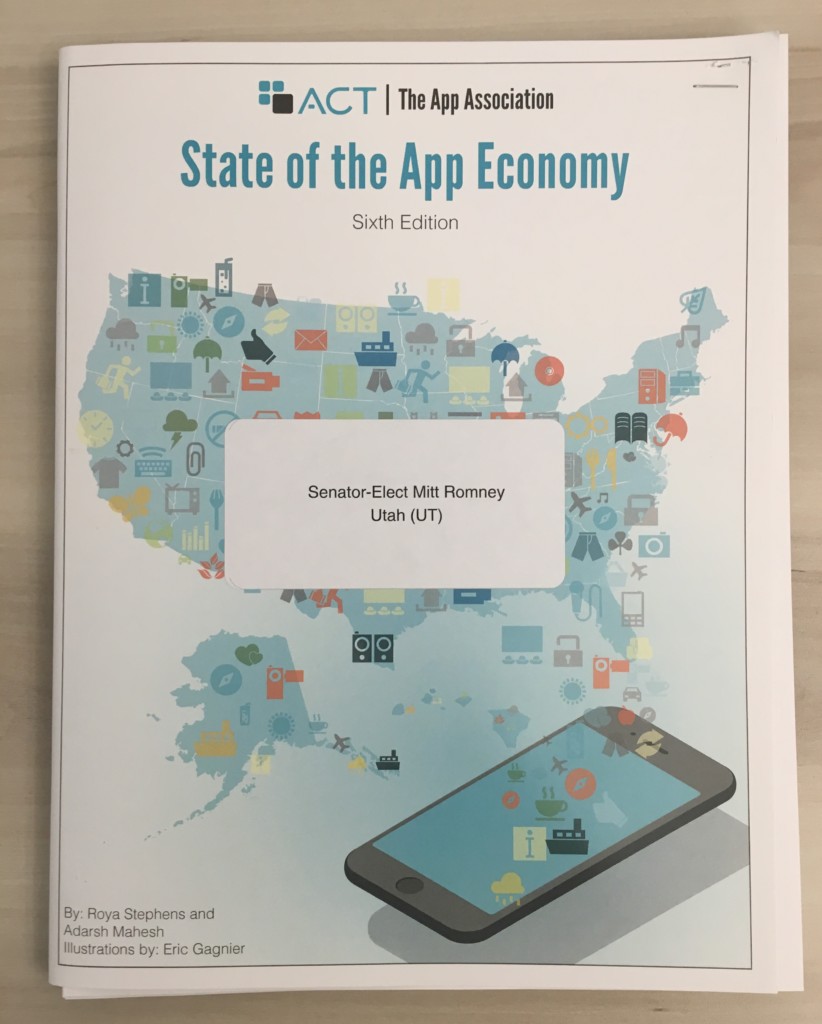Politics is personal. Whether you are caught up on the issues or you avoid thinking about them entirely, political debates and their outcomes affect each of us on an emotional level. What else would make politics—especially the politics of today—so divisive?
But just as politics can divide, they can also form personal relationships—if there is mutual understanding. That goes for both sides of a given debate, whether we are referring to the two political parties, industry and government, or individuals who disagree. At a minimum, understanding is an acknowledgment of another person’s or entity’s experiences. True understanding comes from the consideration of these experiences. Although it can be a difficult exercise, understanding is necessary because it provides a foundation for trust.
ACT | The App Association exists to build relationships and share experiences between our members—5,000 small to mid-size software developing companies around the world—and government. One of the important ways we build these relationships are by facilitating conversations between our member companies and Members of Congress (MoCs). This requires us to develop a common language between small innovators and elected officials. Fortunately, we have relevant experience that helps us facilitate these conversations. For instance, several of us at the App Association come from similar industry associations, Capitol Hill or federal agencies, or a combination of both. All of us here possess a passion for helping government officials understand our member companies, and more importantly, serve as the “translators” between industry and government.
The work begins as soon as MoCs are elected. So, when the new Congress rang in on January 3rd, we were ready. We did our homework in getting to know our freshman MoCs. Back in August, we began tracking 153 of the 470 congressional races (35 in the Senate and all 435 for the House). Top pollsters anticipated these races to be particularly tight; 63 of these were where a current MoC was retiring or had lost their primary and so were guaranteed to be filled by a new Member-elect.
 A sample of the process used to track congressional race outcomes. (Note that this is not the complete process and some columns are hidden.)
A sample of the process used to track congressional race outcomes. (Note that this is not the complete process and some columns are hidden.)
As the results came in on election night, we took note of who won and who lost. Throughout the month of November, we created general position and customized one-pagers for each new MoC, reflective of our industry’s presence in their district or state. Each packet placed emphasis on various topics that matter to our members including privacy, connected health, workforce development, encryption, intellectual property, access to broadband, 5G, and technical standards. Also included was information about an App Association member company in their district—a reminder that our members are their constituents. After all, the important technological innovations that are improving American lives every day are not just taking place in Silicon Valley. Our members are innovating in new MoCs’ backyards, so they need to know their new job is to protect that work. It’s personal.
We compiled these into packets, and in early December we hand-delivered these to 91 representatives-elect and four senators-elect. Now as freshman MoCs settle in, we’re reaching out to their staffs to discuss the public policy issues our members care about. Whether it’s an issue grounded in intellectual property or healthcare, we’re looking forward to bridging the worlds of small business and government to build newfound understanding, one conversation at a time.


